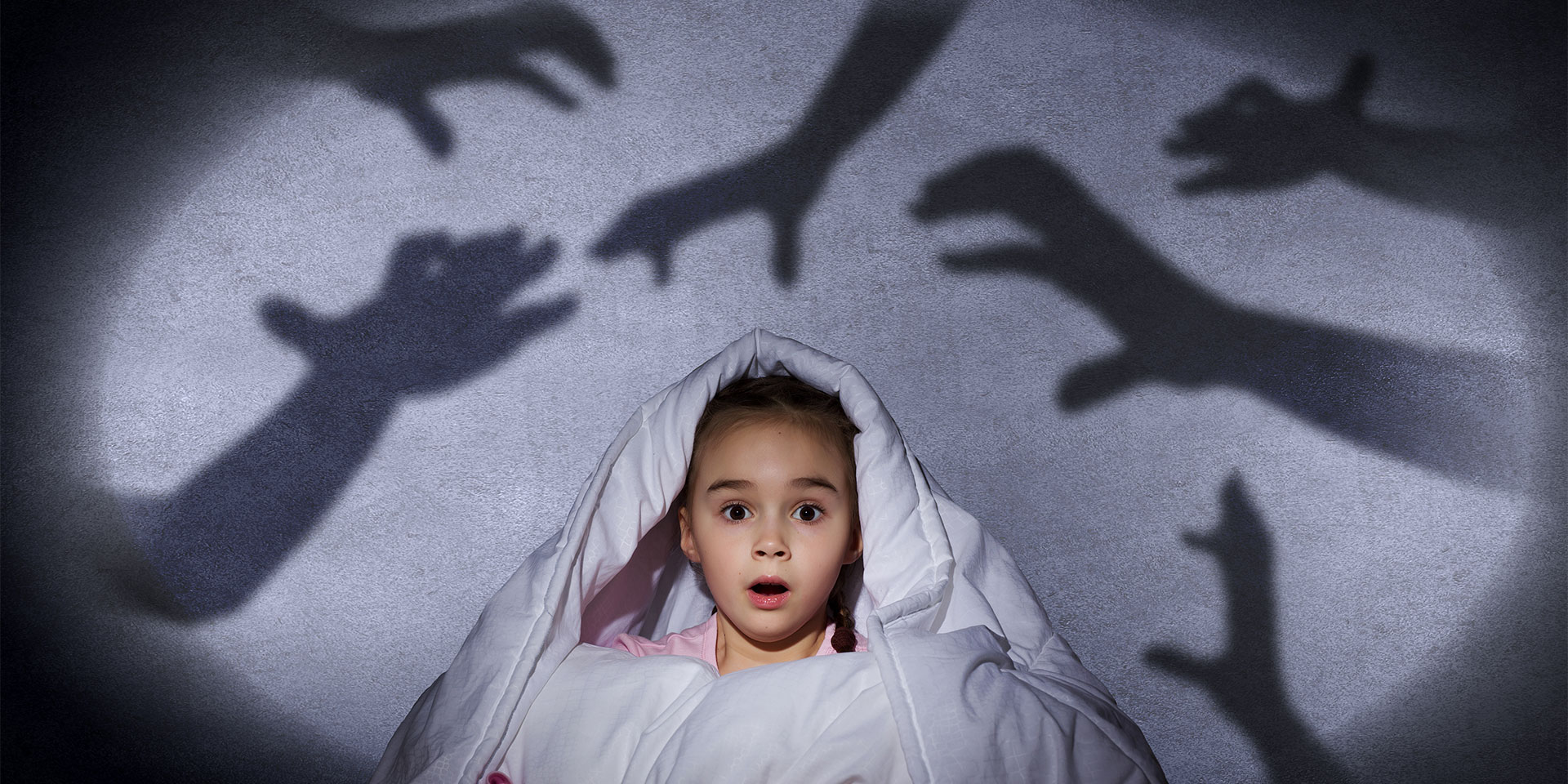In a psalm that is worth reading on our coldest mornings and in our darkest nights, King David asked some rhetorical questions—“Whom shall I fear? Of whom shall I be afraid?”— questions which our contemporaries would not dare to answer.
Each age has been characterised by its own fears. If we were to answer David’s question, we might say we are afraid of suffering, pollution, death, old age, divorce, cancer, the unknown, war, loneliness, and poverty. The list would go on if we were to face all our hidden fears, or if we add those that torment our loved ones.
With 40 million Americans suffering from anxiety, and 14% of Europeans fighting the same battle, it might seem like we have not succeeded in getting to grips with modern life, despite the privileges which would have both enthused and shocked our great-grandparents. Instead, everything we have looks like glassware ready to break with the next strong gust of wind.
In the not too distant past, humans saw God everywhere. They looked at nature through the eyes of faith and felt their dependency on a Creator who had woven His love into every cloud, rainbow, and dewdrop, Christian author Brennan Manning says. Today, when yesterday’s mysteries have been unravelled, we think there is an answer to every future question and we feel bigger and bigger in a world that keeps getting smaller. At the same time, we also feel lonelier.
Perhaps we do not have more reasons to fear than past generations. Perhaps we have just gotten used to carrying fears on our own, even if we might declare ourselves to be Christians. On one hand, Manning says, most of us confess we believe in God’s unconditional love. On the other hand, we crumble under the weight of uncertainty. As theologian Henri Nouwen said: “[and] if I do not find a marriage partner, a house, a job, a friend, a benefactor? What will I do if they fire me, if I lose my friends, if I fail in my marriage, if a war breaks out?”
Essentially, the fears that we feel might be the symptom of a faulty orientation of our attention. We may be focusing on what might go wrong rather than on the One for whom things never get out of hand.
A many-headed monster
The news that he was suffering from cancer hit Pastor David Jeremiah with the force of a lightning bolt. He confesses that he was faced with an “awful fear” once the diagnosis was confirmed. It was not about the fear of death, Jeremiah says, but about a collection of fears, among them the fear of suffering, the fear of parting with his loved ones, and the fear of the unknown.
In his book, Turning Points, Jeremiah tries to dissect the fear he experienced, shedding light on a complicated mosaic of issues.
First, we experience feelings of vulnerability, the author says. When the sun shines and everything is in its place, it is easy to settle into an illusion of invulnerability. However, when faced with the prospect of a hurricane, the bubble pops and the storm’s hostile eyes glare at us from close range.
In the midst of uncomfortable feelings, one can easily feel uncertain. The world no longer seems to be going its usual way, and we do not know how to live under these circumstances. Doubt, fear, and a feeling of urgency give us the feeling that we would like nothing more than for the world to stop and for us to get off at a friendlier station.
Jeremiah says, in the middle of the fear whirlpool, he tested—with the seriousness of the man who stares death in the face—an old truth, which he found to be as solid as in the days when all was well: “Everything changes, only God doesn’t.”
Contrasting himself with what God is, Dietrich Bonhoeffer, the evangelical Pastor executed by the Nazis, found the confidence and comfort he needed in this gap between man and the divine: “In me there is darkness, But with You there is light; I am lonely, but You do not leave me; I am restless, but with You there is peace… I do not understand Your ways, But You know the way for me.”
The future painted in the colours of hope
Fear and concern are two unhealthy reactions in the face of future uncertainty, says Jerry Sittser, author of the book The Will of God as a Way of Life. Sittser compares concern with a “moderate temperature”, and fear with an “unleashed fever”, saying that both drain us of our energy and prevent us from investing ourselves in the present moment.
Confronted with the loss of his mother, wife, and daughter in a car crash, Sittser raised his 3 other children (ages 2, 7, and 8) on his own, and had countless occasions to feel fear and uncertainty regarding the way in which his children’s life would unfold, as well as his own life as a single parent. However, he found ways of fighting the pain, fear, and concern—ways he also shares with his readers.
Prayer is the means by which he received peace, freedom from fear, and confidence, says Sittser, confessing that he prays daily for God to go before him and straighten his path. He also believes he is responsible for preparing for the future, equipping himself with all the abilities and resources he can get. For Sittser, today is a preparation for a tomorrow that will always come, either here or on the other side of eternity. Hope is also a safe anchor in the fearful storms because, as Sittser points out, no matter how dark our story might seem at some point, our Author knows the end. And He even revealed it to us in the pages of His book: “’For I know the plans I have for you,’ declares the Lord, ‘plans to prosper you and not to harm you, plans to give you hope and a future.’” (Jeremiah 29:11)
It is a promise we must accept by faith, say Sittser, despite the circumstances we are in (and which might cast doubt on the existence of a divine plan that favours us). “We will fall in love, change jobs, bury loved ones, say good-bye to children”, Sittser writes, listing all of the possible scenarios we may face and concluding that regardless of their happy or sad character, in the end, God “will work things out for our redemption”.
A love that is stronger than fear
During a Q&A session in Knoxville, Tennessee, a young woman asked the Christian singer and songwriter Lauren Daigle for advice on treating anxiety.
It is possible that the public did not expect the answer that followed: Daigle started talking about her own fight with anxiety. “I wouldn’t necessarily say ‘I’m an anxious person’ – until anxiety comes. And it happened to me often”, confessed the winner of two Grammy awards.
A turning point in this fight with her fears happened when a friend reminded her of the Bible verse: “There is no fear in love. But perfect love drives out fear” (1 John 4:18). Daigle read the verse again and again, convinced that the key to her problem, which had become chronic, lay within it.
Fears still crop up in the most unexpected moments and in the most hidden places of her mind, but the singer says she now has a solution. She opens the windows of her heart to God’s promise of unconditional, limitless love, and fear backs down in defeat. The process is revisited once, twice, or as many times as it takes. Although it seems complicated, it is in fact simple, because it’s about shifting one’s focus: “God, Your love is better than I would be at trying to control tomorrow. Your love is better and has my back better than I could.”
The call “Do not fear!” is repeated dozens, perhaps hundreds of times, in the pages of Scripture, probably because we are so inclined to cave in to fear. There will always be reasons to fear, but at the same time, there will always be reasons to trust.
In fact, trust does not remove the risk that things will take an ugly turn in our lives, says author Philip Yancey. Instead, trust “gives anxiety a different turn and finds a new ground for certainty: God”. And if it is hard for us to believe that “God’s peace … surpasses all understanding” and that this promise is fulfilled in times of trouble, we should remind ourselves that Paul wrote these words from inside a Roman prison, Yancey says.
On the night when the Netherlands was invaded, the ten Boom family, who became famous for their efforts to save Jews in the dark times of the Second World War, slept little and prayed a lot. They prayed for the dead, for the wounded, for the queen, and even for their invaders. And while the family was praying, Corrie, one of the two unmarried daughters, had a vision, or perhaps a dream, in which she saw her family and friends in an old-fashioned carriage, headed to an unknown destination. This vision terrified her.
Later, in the kitchen, Corrie told her older sister the experience she had, asking herself whether she was not starting to imagine things because of her fear. The echo of the bombings had not yet faded out when Betsie’s answer warmed the old, small kitchen: “I do not know. But if God shows us the bad times in advance, it is enough for me to know that He knows of them. You know, this is why He sometimes shows us these things, to tell us they too are in His hands.”
In fact, Betsie had an unshakable conviction: “With God there are no ‘ifs’, nor places which are safer than others.” A strangely solid belief for someone who witnessed the darkness of Nazi concentration camps, and who died in a dirty infirmary room, right before her release.
The ten Boom sisters imitated the perseverance and courage of the Crucified One. “As the time approached for him to be taken up to heaven, Jesus resolutely set out for Jerusalem”, Luke the evangelist says. No one could force Jesus to head to Jerusalem. He knew that He would be betrayed there, abandoned, secretly tried, whipped, slapped, spat upon, and hung up naked between the heavens and the earth, while a whole city mocked His suffering. Nothing could have sent Him to the agony in Jerusalem, other than the “joy set before Him”: “that you also may be where I am” (John 14:3).
And this love, which accepted death so that I could have life in abundance—a life that will last for eternity—can calm all of my fears with its embrace.
Carmen Lăiu is a writer for ST Network and Semnele timpului.



















